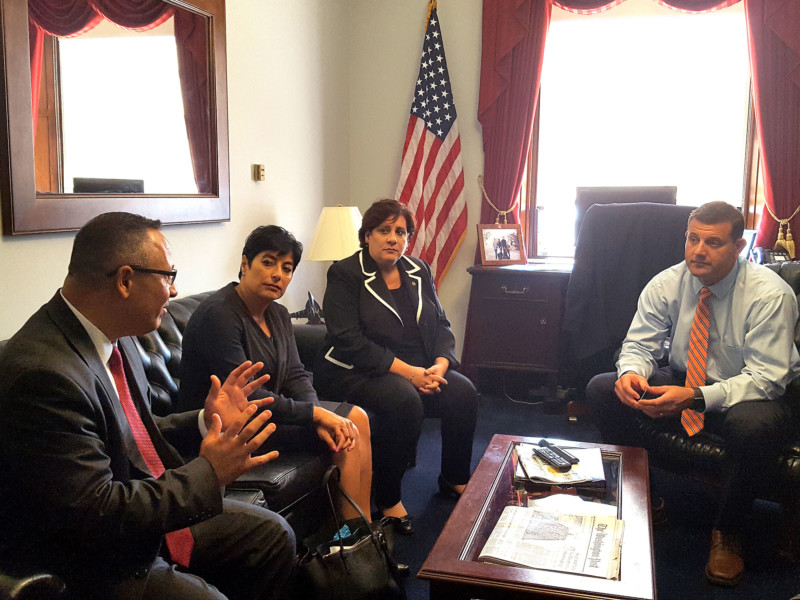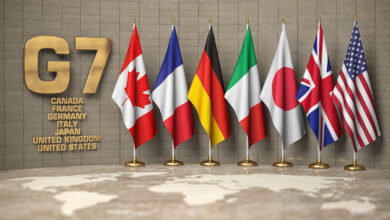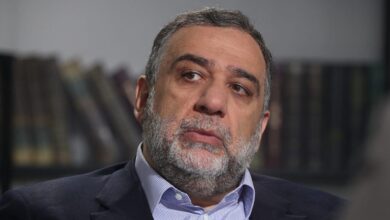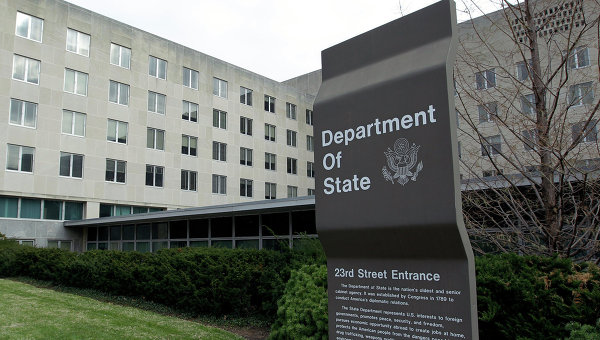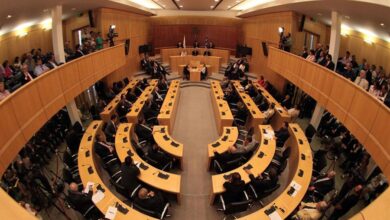
U.S. Representatives David Valadao (R-CA) and Brad Sherman (D-CA) are collecting signatures on a bipartisan letter urging their Congressional colleagues to request that Secretary of the Treasury Steven Mnuchin renegotiate the existing, outdated Double Tax Treaty with Armenia, an obsolete Cold War-era accord, recognized today by the U.S. but not Armenia, that was negotiated with the now defunct USSR more than four decades ago.
The Valadao-Sherman letter notes that “The existing Soviet-era treaty does not reflect the increasing complexity of a globalized world and the friendship between the American and Armenian peoples,” then calls upon Secretary Mnuchin to, “prioritize the renegotiation of the double tax treaty with Armenia.” The letter also underscores that “the complexities of the international tax structure should not discourage American and Armenian companies from conducting business with each other due to double taxation. The need for updated guidelines that reflect the current state of U.S.-Armenian relations and recently passed tax reform legislation cannot be understated.”
“We want to thank Representatives Valadao and Sherman for spearheading Congressional outreach to Secretary Mnuchin in support of an updated, working U.S.-Armenia Tax Treaty that will – by ending the threat of double taxation – break down a key barrier to the growth of bilateral trade and investment,” said ANCA Government Affairs Director Raffi Karakashian. “We join with them in encouraging their House colleagues to support the timely negotiation of this mutually-beneficial and long overdue accord.”
Following the signing of the U.S.-Armenia Trade and Investment Framework Agreement (TIFA) in 2015, the ANCA has been working closely with a broad range of legislators to encourage the Department of Treasury to negotiate a new U.S.-Armenia Double Tax Treaty. In September 2017, the ANCA joined with Paul Korian and Peklar Pilavjian, leading U.S. investors in Yerevan’s landmark Marriott hotel, for a series of Capitol Hill and State Department meetings making the case for an updated compact. Internationally renowned Tufenkian Artisan Carpets; Triada Studio, the Armenia-based creator of the Apple Design Award-winning Shadowmatic Game; and PicsArt, the Yerevan and San Francisco based makers of one of the most popular photo-editing, collage and drawing apps, are among the many firms urging the lifting of barriers to U.S.-Armenia trade through the implementation of a new double-tax treaty.
A U.S.-Armenia Double Tax Treaty would establish a clear legal framework for investors and individuals that have business activities in both jurisdictions, preventing double taxation and facilitating the expansion of economic relations. It would also help reinforce the friendship of the American and Armenian peoples, anchoring Armenia to the West, and providing Yerevan with greater strategic options and independence in dealing with regional powers.
The U.S. has Double Tax Treaties with many small countries, including Estonia, Jamaica, Latvia, Lithuania, Malta, and Slovenia. Armenia has Double Tax Treaties with many advanced countries, including Austria, Belgium, Canada, China, France, Italy, the Netherlands, Poland, Russia, and the United Kingdom.
The full text of the Valadao-Sherman letter is provided below:
Dear Secretary Mnuchin,
We are writing you with regards to the current U.S. tax treaty with the Republic of Armenia. The current tax treaty between the United States and Armenia is insufficient for the needs of the two countries, as it was last negotiated with the Union of Soviet Socialist Republics (USSR) during the Cold War in 1973.
We believe the unrealized benefits of an updated double tax treaty between Washington and Yerevan necessitate immediate negotiations, which could be based upon the frameworks of treaties recently ratified with other nations. In fact, the Armenian Embassy has said it would be “willing to conclude such an accord on the basis of the latest U.S. Model Income Tax Convention of 2016.”
The complexities of the international tax structure should not discourage American and Armenian companies from conducting business with each other due to double taxation. The need for updated guidelines that reflect the current state of U.S.-Armenian relations and recently passed tax reform legislation cannot be understated.
As Members of Congress, we respectfully urge you to prioritize the renegotiation of the double tax treaty with Armenia. The existing Soviet-era treaty does not reflect the increasing complexity of a globalized world and the friendship between the American and Armenian peoples. Furthermore, it is vital we provide businesses from both countries the ability and incentive to invest in one another.
Thank you for your service to the United States. We look forward to your response.


